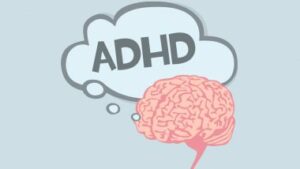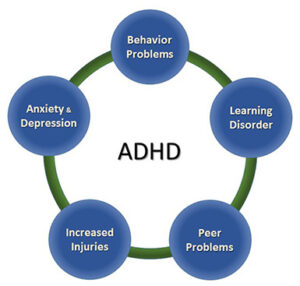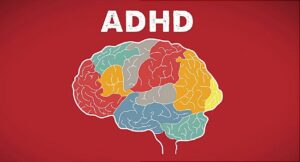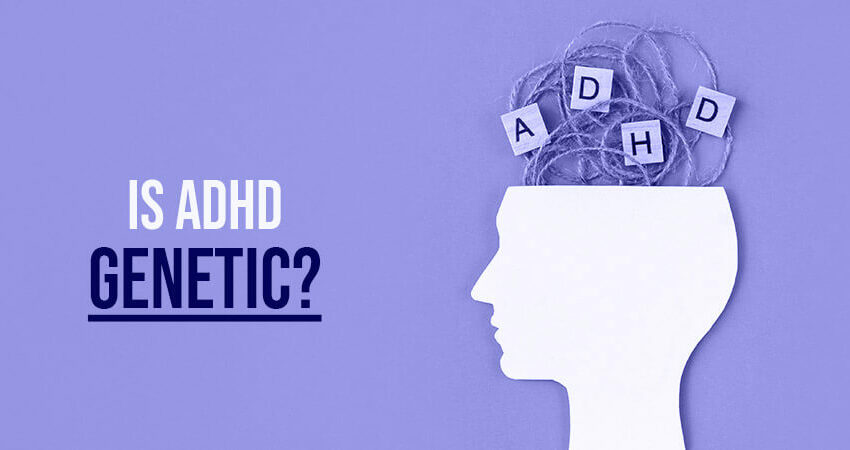Attention Deficit Hyperactivity Disorder, better known as ADHD, is a mental disorder that is characterized by problems with focus, hyperactivity, and impulsiveness. It is one of the most commonly diagnosed disorders in children and adolescents. But what about adults? Is ADHD genetic? And if so, what does that mean for those affected by it? In this blog post, we will discuss the latest research on the topic and answer some of the most common questions people have about ADHD genetics.
Contents
What Is ADHD?
 ADHD refers to Attention Deficit Hyperactivity Disorder. It’s a neurobehavioral condition that affects both children and adults. People with ADHD have difficulty paying attention, controlling impulsive behaviors (may act without thinking about what the consequences will be), and/or are overly active.
ADHD refers to Attention Deficit Hyperactivity Disorder. It’s a neurobehavioral condition that affects both children and adults. People with ADHD have difficulty paying attention, controlling impulsive behaviors (may act without thinking about what the consequences will be), and/or are overly active.
ADHD begins in childhood but can persist into adulthood. But it can impact to what degree it affects someone throughout their lifetime. This condition is one of the most common childhood disorders and can occur in children of all backgrounds.
According to the National Institute of Mental Health, an estimated 11 percent of children between the ages of 4 and 17 have ADHD. This means that nearly one in every nine kids has symptoms of this condition. Some common signs of ADHD include:
- Trouble paying attention
- Easily distracted
- Fidgeting or squirming
- Difficulty sitting still for long periods of time
- Excessive talking
- Acting impulsively without thinking about the consequences
So it can be difficult to manage the condition on a day-to-day basis. But there are treatments available that can help people with ADHD live productive, successful lives.
Is ADHD Genetic?
There are always debates about ADHD’s genetic causes. While some people swear that ADHD is hereditary, others are just as adamant that it’s not. So, what’s the verdict? Let’s take a closer look at the research to see if we can find an answer.
One of the most often cited pieces of evidence for ADHD being genetic is that it often runs in families. And, indeed, if you have a close relative with ADHD, your risk of having the condition is increased. There are also several theories that suggest ADHD genetics is linked to specific genes.
For example, ADHD genetics develops when a certain gene that’s responsible for producing dopamine isn’t working properly. Dopamine is a neurotransmitter that helps to regulate our mood, attention, and motivation. If there’s not enough dopamine, it can lead to ADHD symptoms.
Other research has suggested that people with ADHD have differences in their brain structure and function. For instance, they may have a smaller prefrontal cortex, which is the area of the brain responsible for executive functioning skills like planning and organization.
So, what does all this research mean? Well, it’s still not definitive but it does suggest that there is a strong possibility that ADHD has a genetic component. However, this doesn’t necessarily mean that ADHD is purely genetic. But if you have a family member with ADHD, it’s worth considering that you may be at increased risk for the condition.
What Are Other Causes Of ADHD?
 Although there are high chances of developing ADHD with a family member who has it, there are also other possible causes. Studies show that exposure to toxins like lead can also be a cause of this condition. There are also other causes of ADHD, including:
Although there are high chances of developing ADHD with a family member who has it, there are also other possible causes. Studies show that exposure to toxins like lead can also be a cause of this condition. There are also other causes of ADHD, including:
A mother’s smoking during pregnancy
This is one of the most common environmental factors that can lead to a child developing ADHD. Because smoking decreases the amount of oxygen that reaches the brain, it can lead to problems with brain development. For example, smoking during pregnancy has been linked to an increased risk of impulsivity and hyperactivity.
Low birth weight
It is believed that low birth weight babies are more likely to develop ADHD. Studies have shown that children with low birth weights are more likely to have problems with inattention, impulsivity, and hyperactivity. For example, one study found that low birth weight was associated with a two-fold increased risk of ADHD.
Brain injuries
There are many potential causes of ADHD. One possible cause is a brain injury. A brain injury can result in changes in the way the brain functions, which may lead to symptoms of ADHD. For example, if someone had a concussion, it could result in ADHD symptoms.
Nutritional deficiency
Sometimes there are deficiencies in certain nutrients that can lead to ADHD-like symptoms. For example, zinc deficiency has been linked to ADHD. Zinc is essential for proper brain development and function. A lack of zinc can lead to problems with learning and behavior. Other deficiencies that have been linked to ADHD include iron, magnesium, and omega-three fatty acids.
It is important to note that ADHD is not caused by a single gene. Rather, it is the result of a combination of several genes. However, this does not mean that you will definitely develop ADHD. There are many environmental factors that can contribute to the development and increases the risk factors of ADHD.
For instance, exposure to lead or other toxins during pregnancy can increase a child’s risk of developing the condition. So these are some other causes that might be behind your child’s ADHD diagnosis. It’s important to rule out all other possibilities before settling on a diagnosis of ADHD.
How Does ADHD Impact The Brain?
 If ADHD is genetic, how does it impact the brain? As we have discussed that if someone has ADHD genetically then the reason behind it is the production of less dopamine in their brain. Dopamine is a neurotransmitter that helps with focus, motivation, and pleasure. So, people with ADHD have trouble focusing because they don’t have enough dopamine to help them focus.
If ADHD is genetic, how does it impact the brain? As we have discussed that if someone has ADHD genetically then the reason behind it is the production of less dopamine in their brain. Dopamine is a neurotransmitter that helps with focus, motivation, and pleasure. So, people with ADHD have trouble focusing because they don’t have enough dopamine to help them focus.
Therefore as with the ADHD genetic, the chemicals of the brain are involved, it causes negatively your brain. There are some functional regions of the brain that are affected by ADHD. These include:
Frontal cortex
The frontal cortex is the region of the brain that is responsible for planning and executive functions. People with ADHD have difficulty with planning and organization because the frontal cortex is not functioning properly. And a deficiency in dopamine can cause problems with impaired functioning and organizational skills.
Limbic system
This is located in the middle of the brain and deals with emotion. It’s responsible for the fight-or-flight response, which is when you feel fear or anxiety in a dangerous situation. This part of the brain is also linked to ADHD. For example, people with ADHD may have a smaller hippocampus, which is the part of the brain that controls emotion and memory.
Prefrontal cortex
This is located at the front of the brain and is responsible for decision-making, planning, and controlling impulses. ADHD can cause problems in this area because people with ADHD may have trouble inhibiting their impulses or considering the long-term consequences of their actions.
Basal ganglia
It is a cluster of neurons that controls movement. People with ADHD may have trouble with this because they may have problems with fine motor skills or hyperactivity. Also, it is believed that this part of the brain is responsible for the “reward” feeling we get when we do something. This may be why people with ADHD are often seeking out new and exciting activities.
Reticular activating system
This type of system is responsible for a person’s level of alertness. It has been found that people with ADHD have a lower level of activity in this system. This means that they are easily distracted and have trouble focusing on tasks. For instance, if a child with ADHD is trying to do homework, they may be easily distracted by things around them.
So whatever the cause may be, it largely impacts the brain in each possible way. So do not wait further and seek help today for a better tomorrow!
How To Diagnose ADHD Genetic?
 The diagnosis of ADHD genetic is not as simple as looking for a single gene. In fact, there is no one “ADHD gene.” Instead, ADHD seems to be caused by a combination of genetic and environmental factors. There are several challenges during the ADHD genetic diagnosis process:
The diagnosis of ADHD genetic is not as simple as looking for a single gene. In fact, there is no one “ADHD gene.” Instead, ADHD seems to be caused by a combination of genetic and environmental factors. There are several challenges during the ADHD genetic diagnosis process:
- Different people with ADHD can have different symptoms. This makes it hard to create a “one size fits all” diagnostic criteria.
- ADHD can be difficult to distinguish from other conditions, such as anxiety or depression. This is especially true in adults, who may not have had ADHD as children.
There is no single test that can diagnose ADHD. Instead, doctors have to rely on a combination of medical history, family history, interviews, and observations.
For example, a doctor might ask questions about your symptoms, such as how often they occur and how long they have been occurring. They may also ask about your family history of ADHD or other mental health conditions. In some cases, your doctor may also recommend neuropsychological testing. This can help to rule out other conditions that may be causing your symptoms.
If you or your child is showing signs of ADHD, it’s important to talk to a doctor. They can help to rule out other conditions and develop a treatment plan that’s right for you.
Can Genetic ADHD Be Treated With Gene Therapy?
This is very specific when it comes to gene therapy and treating ADHD. It is a method that is still being researched, so it is hard to say for sure if it will be effective. However, gene therapy could potentially be used to change the way the genes that are associated with ADHD are expressed.
For example, gene therapy for ADHD genetic works by introducing a new gene into the cells that are affected by the disorder. This new gene would then be able to correct the function of the abnormal gene. There may also be a way to silence the gene that is causing the ADHD symptoms.
Gene therapy is also known as genome editing. It is a type of therapy that holds a lot of promise. This technique gives people new hope to treat their disorders. This new technology allows scientists to make changes to organisms’ DNA to change, altered, or improve the function of a gene.
The goal with ADHD and other disorders is to find ways to improve the function of genes that are not working correctly. Researchers are still working on perfecting this method and it will likely be many years before we know if it is truly effective. In the meantime, there are other treatments available that can help to manage ADHD symptoms.
Other Treatment Options
So when it comes to ADHD, are there other treatment options available? If you’re not comfortable with the idea of gene therapy because of its ongoing research, or it hasn’t worked for you. Don’t despair, there are definitely other things you can try. Some of these options are listed below:
Behavioral therapy
 Therapies are always considered a one-line treatment because they can help alleviate some of the symptoms. If you have trouble focusing, behavioral therapy can help you learn how to better organize your thoughts and tasks. It can also teach you how to better communicate with others. For example, this therapy works on :
Therapies are always considered a one-line treatment because they can help alleviate some of the symptoms. If you have trouble focusing, behavioral therapy can help you learn how to better organize your thoughts and tasks. It can also teach you how to better communicate with others. For example, this therapy works on :
- Helping you understand why you have trouble with focus
- How to better control your emotions
- Building up motivation and confidence
- Learning how to problem solve
Social skills training
This is a type of therapy that can help your child learn how to interact with other kids and adults. It can also teach them how to better control their emotions and behaviors. For example, a person with ADHD might need help learning how to take turns, share toys, or understand personal space. so in social skills training, your child will learn these types of things.
Parenting training
It is important to note that ADHD cannot be cured, but it can be managed. There are many resources available to help parents better understand and manage their child’s condition. One option is parenting training specifically for parents of children with ADHD. These programs provide Parents with tools and strategies for dealing with common challenges associated with the condition.
Medication
There is also medication that can be used to help treat ADHD. This includes:
- stimulants
- non-stimulants
- antidepressants.
Stimulants are the most common type of medication used to treat ADHD. They help improve focus, attention, and impulsivity. Non-stimulants can also be used to treat ADHD. They help with focus, but they don’t have the same side effects as stimulants. Antidepressants are sometimes used to treat ADHD, but they are not as common.
Dietary changes
For some people, what they eat definitely has an effect on their ADHD. It’s important to cut out any processed foods, artificial additives, and sugar. You should also make sure to include plenty of protein, healthy fats, fruits, and vegetables in your diet. Supplements like omega-three have also been shown to be beneficial for people with ADHD. However, this is a bit of a controversial topic because there’s no real evidence that diet plays a role in ADHD.
Exercise
Exercise is a great way to naturally increase focus and concentration. It’s also a great way to release any excess energy that can be a symptom of ADHD. Exercise has also been shown to help improve sleep, which is often an issue for people with ADHD. There are several types of exercise that can be helpful, but HIIT (high-intensity interval training) and yoga seem to be the most beneficial.
Relaxation techniques
 As ADHD causes concentration problems, relaxation techniques are considered one of the most important treatments. Relaxation techniques help to improve focus and concentration by reducing stress and anxiety. There are many different relaxation techniques that can be used, such as:
As ADHD causes concentration problems, relaxation techniques are considered one of the most important treatments. Relaxation techniques help to improve focus and concentration by reducing stress and anxiety. There are many different relaxation techniques that can be used, such as:
- Yoga
- Meditation
- Deep breathing exercises
- Guided imagery
One of the most effective relaxation techniques for treating ADHD is mindfulness meditation. It involves paying attention to your thoughts and feelings in the present moment, without judging them. This can help to improve focus and concentration by teaching you to become more aware of your thoughts and how they affect your behavior.
Self-care
Along with other treatments, self-care is an important part of managing ADHD. There are a few key things you can do to care for yourself:
- Get enough sleep: Most people need around eight hours of sleep per night. Consider going to bed and waking up at the same time each day to help regulate your body’s natural sleep rhythm.
- Identify your triggers: In ADHD, certain activities or situations can trigger impulsive behavior or hyperactivity. Once you know what your triggers are, you can avoid them or be prepared to deal with them in a constructive way.
- Take breaks: When you’re feeling overwhelmed or your concentration is flagging, take a few minutes to yourself to relax and rejuvenate. Taking breaks throughout the day can help you stay on task and avoid burnout.
- Set realistic goals: Trying to do too much at once can be overwhelming, leading to frustration and disappointment. When setting goals, be realistic about what you can accomplish and break tasks down into smaller, more manageable pieces.
- Create a support network: Having people you can rely on for emotional support and practical help can make a big difference in managing ADHD. If you don’t have close friends or family members who understand your condition, there are many support groups available online and in person.
By following these self-care tips, you can take an active role in managing your ADHD and improving your overall well-being.
Conclusion
Conclusively, ADHD genetics is a controversial topic with a lot of myths and misconceptions. However, the research on this subject is ongoing, and there is still much to learn about the condition. For now, it appears that ADHD does have a genetic component, but environmental factors also play a role in its development.
Therefore it is important to seek professional help if you or your child are displaying symptoms of ADHD. A qualified mental health professional can conduct a comprehensive assessment and provide an accurate diagnosis. With the right treatment, people with ADHD can lead successful and fulfilling lives.
For more information and tips you can contact Therapy Mantra. We have a team of professional therapists who can provide you with the support and guidance you need to recover from this condition. Contact us today to learn more about our services. You can also book an online therapy session or download our free Android or iOS app.


